Do you have a garden that is full of tomatoes? If so, you may be wondering what animals will eat them. In this guide, we will provide you with some useful tips about which animals like to feast on tomatoes. We will also discuss some ways to protect your tomatoes from being eaten by animals. So, whether you are just starting out in tomato gardening or you have been doing it for years, this guide is for you!

What Makes Tomato Plants Attractive to Animals
There are a few things that make tomato plants attractive to animals. First, the plant itself is relatively soft and easy to bite into. This makes it a tempting target for animals like rabbits and deer who are looking for an easy meal. Second, the fruit of the plant is sweet and juicy, which makes it appealing to animals with a sweet tooth. Finally, the tomato plant produces a large number of fruits, which can be appealing to animals who are looking for a food source that will last them through the winter months.
What Animals Love Tomatoes
Gardens are a great place to grow your own food.
Knowing what animals love tomatoes can help you keep your garden safe and healthy.
Squirrels
Squirrels are a type of rodent that can be found in many different parts of the world. They are known for their bushy tails and their love of nuts. There are many different types of squirrels, but the most common one is the red squirrel.
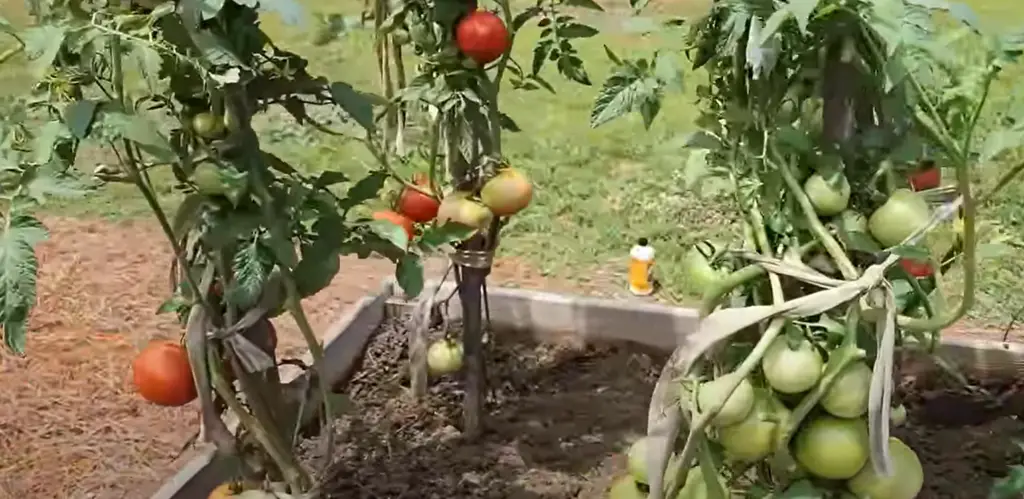
Red squirrels are often considered to be a nuisance by gardeners because they will eat just about anything, including tomatoes. If you’ve ever seen a squirrel darting around your garden, there’s a good chance they’re after your tomatoes. While they typically go for the ripe fruit, they’ll also eat unripe or fallen tomatoes. Not only do they eat the fruit itself, but they also enjoy munching on the leaves, stems, and flowers.
Chipmunks
Chipmunks are small, striped rodents that are closely related to squirrels. They are found in North America and have an average lifespan of three years. Chipmunks typically eat seeds, nuts, fruits, and insects.
While they generally prefer to avoid humans, chipmunks can become a nuisance if they decide to build their nests in your yard or garden. And chipmunks love tomatoes!
Chipmunks are known to be very agile and are excellent climbers.This makes it difficult to keep them out of gardens and tomato plants.
Groundhogs
Another rodent that enjoys eating tomatoes is the groundhog. Groundhogs are one of the most common animals that eat tomatoes in gardens. These burrowing rodents are also known as woodchucks, and they’re notorious for their appetite for vegetables. If you have a groundhog in your garden, you’ll likely see it during the day as it munches on your tomatoes. Groundhogs typically weigh between four and seven pounds, and they’re brown or gray with white patches on their bellies. These animals dig dens underground, and they often live in groups.
Rabbits
Rabbits are small, furry mammals that are found in many different parts of the world.
Domestic rabbits typically weigh between two and four pounds and can be white, brown, black, or gray.
Rabbits are herbivores that feed primarily on grasses and other plants. However, they will also eat fruits, vegetables, and flowers. In some cases, rabbits can be a nuisance to gardeners because they will eat newly planted seedlings or dig up bulbs. And they are in this list for a reason – rabbits can cause harm to your tomato plants as well. [1],[2],[2]
Deer
While deer are primarily a forest animal, they can come to gardens in search of food. Deer are large mammals that can weigh up to 1500 pounds. The most common type of deer is the white-tailed deer, which is found in North America.
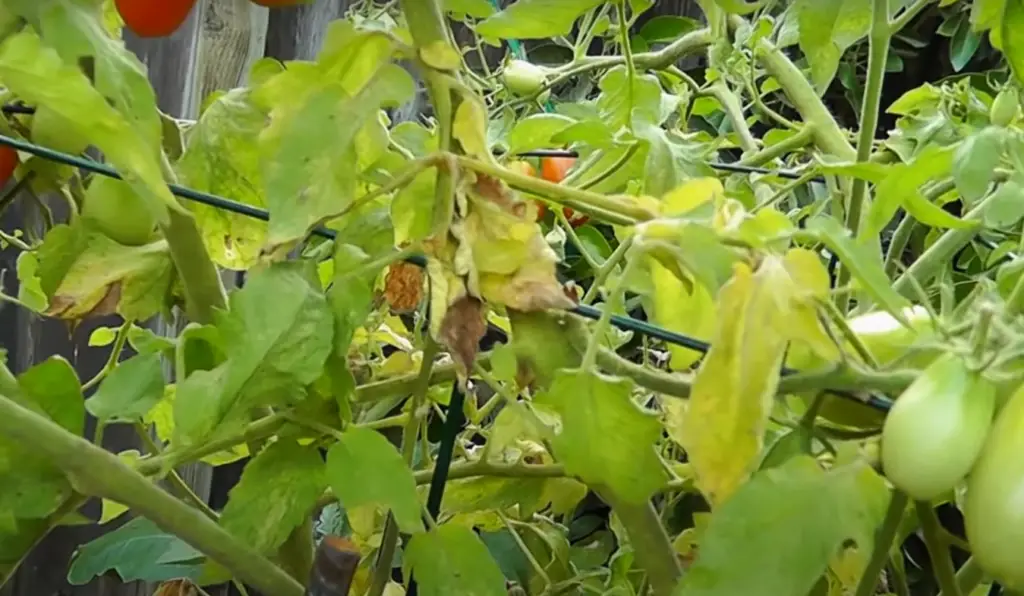
Being big eaters, deer will nibble on just about anything in your garden. But their favorite foods are leafy greens, fruits, and flowers. And of course, tomatoes are in this list as well.
Skunks
Skunks are small, furry mammals that are found in North America and parts of South America. They are black or brown with white stripes on their backs, and they have a distinctive odor.
While skunks are best known for their spray, they’re also famous to be opportunistic eaters and will eat just about anything they can find. This includes fruits, vegetables, insects, and even small mammals. Skunks are attracted to tomato plants because of the sweet smell of the fruit. They will often dig up the plant in search of a meal.[3]
Rats and Mice
Rats and mice are commonly known to cause havoc in gardens. They are attracted to the soft flesh of the tomato fruit and can quickly destroy a plant. In addition, rats and mice will also nibble on the leaves of the plant, which can damage the plant and make it more susceptible to disease. If you have a rat or mouse problem in your garden, it is important to take steps to control them as soon as possible as they can quickly destroy a tomato garden if they are not controlled. [3]
Raccoons
Raccoons are small mammals with bushy tails and black masks around their eyes. Raccoons are nocturnal animals, meaning they are most active at night. They are excellent climbers and can scale walls and fences easily.
Raccoons are also omnivores, which means they will eat both plants and small animals. They will eat just about anything, but their favorite foods include crayfish, frogs, fish, snakes, birds, eggs, fruits, vegetables, nuts, and insects. In urban areas where human garbage is readily available, raccoons often become nuisance animals because they will rummage through trash cans in search of food. In terms of tomato gardening, this means that raccoons will go after your ripe tomatoes if they can get to them. [1],[2],[3]
Voles
Voles are small, mouse-like rodents that can be a big problem in gardens. These pests burrow underground and feed on roots, bulbs, and other plant material. This can damage or even kill your plants. Voles are especially fond of eating tomatoes.
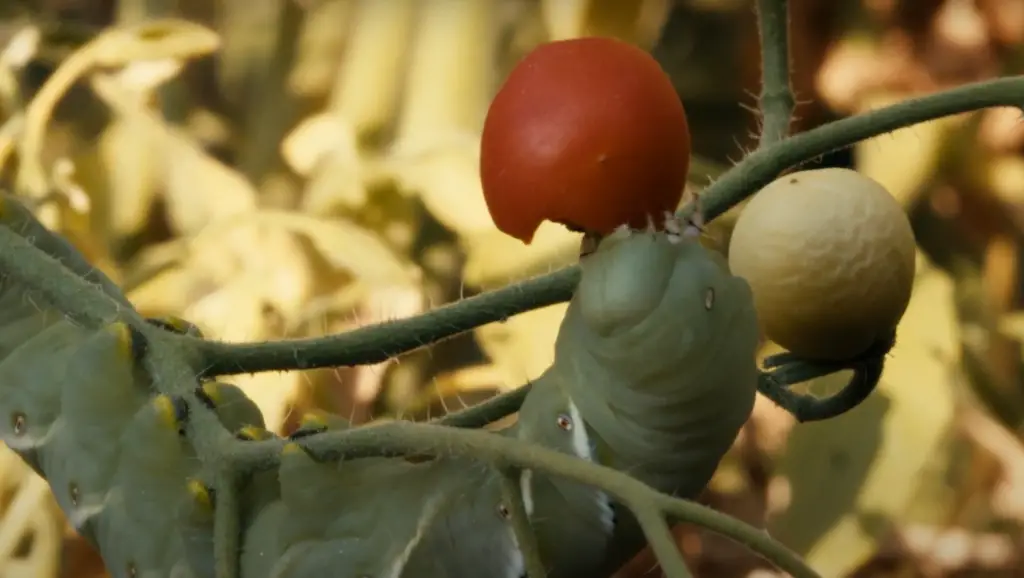
If you see your entire tomato plant get sewered off at the ground level, chances are you have voles. Voles leave behind telltale signs of their presence, including small tunnels in the soil and grass that lead to your plants.
Birds
Birds are one of the most common animals that love to eat tomatoes. In fact, many people consider them to be pests because a flock of birds can easily destroy a crop in a matter of days. However, not all birds are a threat to tomato plants. Only certain species, such as common garden birds, are known to eat tomatoes. Those species of birds that do eat tomatoes typically go for the ripe fruits, as they are the sweetest.
The most common type of bird that eats tomatoes is the cardinal. Cardinals are a type of songbird that is native to North America. They are known for their bright red plumage, which makes them easy to spot in the garden. Cardinals typically eat the fruit of the tomato plant, but they will also occasionally eat the leaves and stems.
Another type of bird that loves to eat tomatoes is the blue jay. Blue jays are a type of songbird that is native to North America. They have a bright blue plumage and a very loud call. Blue jays typically eat the fruit of the tomato plant, but they will also occasionally eat the leaves and stems.
The last type of bird that loves to eat tomatoes is the mockingbird. Mockingbirds are a type of songbird that are known for their ability to mimic the calls of other birds.
Chickens are also known to eat tomatoes. They will peck at the fruits of the plant, and if given the opportunity, will also eat the leaves and stems. While chickens generally won’t do too much damage to a tomato plant, they can still be a nuisance if they’re allowed to run rampant in a garden. [3],[4]
Opposums
Being usually found in cities and suburbs, the opposum is a scavenger that will go through your trash cans in search of food. They are also known to eat fruits and vegetables from gardens. In terms of tomato gardening, this means that they will go after any ripe tomatoes that they can find. [1]
Bugs
Of course we can’t forget about bugs! There are a variety of different bugs that love to eat tomatoes, including caterpillars, aphids, and whiteflies. Caterpillars are the larvae of moths and butterflies, and they can do a lot of damage to tomato plants. They typically eat the leaves of the plant, but can also eat the fruits themselves.
Aphids are small, sap-sucking insects that can infest tomato plants. They typically feed on the undersides of the leaves, which can cause the leaves to turn yellow and eventually drop off.
They typically congregate on the undersides of the leaves and can cause the leaves to turn yellow and eventually drop off. [5]
How to Protect Your Tomato Plants From Animals
As you can see, there are a variety of animals that love to eat tomatoes. But don’t despair! There are a few things you can do to protect your tomato plants from these hungry critters. Of course not all methods will work for every type of animal. For example, if you’re trying to keep rabbits out of your garden, you’ll need to take a different approach than if you’re trying to keep deer out. The good news is that there are a number of effective methods for keeping both types of animals out of your tomato patch.
Clean your garden regularly
More often than not, prevention is the best method for keeping animals out of your garden. This means regularly cleaning up your garden so that there is no food or shelter for animals to take refuge in. Remove any fallen fruits or vegetables, and keep the area around your plants free of debris.
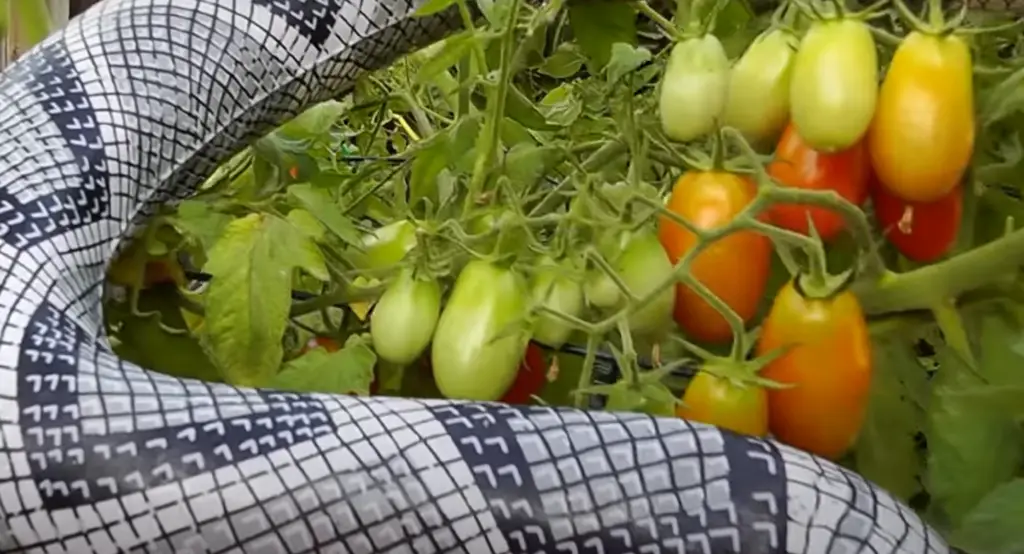
Another way to deter animals from coming into your garden is to make it less inviting. This means removing any places where animals can hide, such as dense foliage or piles of wood. Keep your tomato plants well trimmed and prune any dead or dying branches.
Many animals, like raccoons will be attracted to your garden if there is a water source nearby. So it’s important to keep your pool or fountain clean and free of debris. You should also make sure that there is no standing water in your garden, as this will attract mosquitoes and other pests.
Inspect the ground for holes or burrows
One of the best ways to keep animals out of your garden is to physically block them from getting in. This means inspecting the ground around your garden for holes or burrows that animals may use to get into your garden. If you see small tunnels in the soil, chances are you have voles. If you see large holes, chances are you have raccoons.
Usually, animals like rabbits won’t travel far from their homes to find food. So, if you see evidence of animals around your tomato plants, chances are they’re coming from a nearby burrow or den.
In either case, take steps to fill in the holes or block off the tunnels to prevent the animals from getting to your plants. You can use rocks, dirt, or even chicken wire to block off access to your garden.
Pick them early
Another way to prevent animals from eating your tomatoes is to pick them early. This isn’t always possible if you want to let them ripen on the vine, but it’s worth a try if you’re having trouble with animals getting to your plants.
Luckily, tomatoes can be ripened indoors if you pick them when they’re still slightly green. Just put them in a sunny spot and wait a few days for them to turn red.
Install fences around your garden
A great method to keep animals out of your garden is to install a fence. This will create a physical barrier that animals will have to cross if they want to get to your tomatoes.There are many different types of fences you can choose from, so be sure to pick one that’s appropriate for the type of animal you’re trying to keep out.
For example, with rabbits you’ll want a fence that’s at least six feet tall. If you’re dealing with deer, however, you’ll need a much taller fence – at least eight feet.
Another thing to keep in mind is that some animals are good climbers. So if you’re dealing with something like squirrels or raccoons, be sure to choose a fence that has an overhang or is otherwise difficult to climb.
Avoid making gaps in your fence too large, as this will give animals an easy way to get into your garden. And be sure to repair any damage to your fence as soon as possible, as this will give animals a way in.
You can also build a wire cage around your tomato plants. This is especially effective against small animals like rodents and rabbits. Be sure to use heavy-duty wire so that the animals can’t chew through it. You’ll also want to make sure the cage is tall enough so that the animals can’t jump over it.
Fences won’t do much to protect your plants from birds however. So if you’re having trouble with birds eating your tomatoes, you’ll need to take additional measures. One way to do this is to place netting around your plants. This will deter animals from being able to get to the plants, and it’s also a good way to keep birds from pecking at the ripe fruit.
Use an animal repellent spray
If you’re dealing with small animals like rabbits or squirrels, you can try using an animal repellent spray. There are a number of animal repellant sprays available on the market that can help keep animals away from your tomato plants.
You’ll also want to make sure you follow the instructions on how and when to apply the spray.
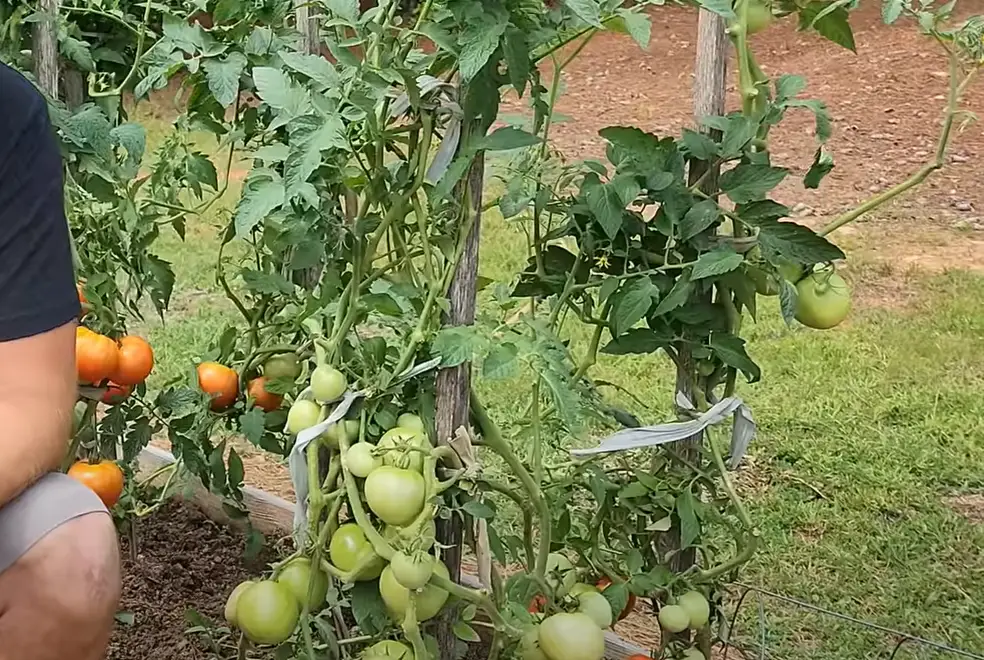
If you don’t want to harm animals, look for a natural animal repellent. There are a number of recipes available online for homemade animal repellents that use ingredients like cayenne pepper, garlic, or citrus oil.
Place traps
One of the most common ways to keep animals out of your garden is to place traps. This can be anything from a simple mouse trap to a more elaborate live trap. If you’re not comfortable with the idea of killing animals, there are also humane options available that will capture the animal without harming it.
For example, you could bait a live trap with some of the foods that animals love to eat and then release them far away from your garden. Just be sure to check the trap regularly so that any animals that are caught don’t suffer needlessly.
Place a scarecrow in your garden
One of the simplest ways to keep animals out of your garden is to place a scarecrow in it. This won’t work 100% of the time, but it’s definitely worth a try. You can either purchase a scarecrow from your local gardening store, or make one yourself using old clothes and stuffing them with hay.
Another option is to use visual deterrents such as shiny objects or streamers. These will startle the animals and may cause them to stay away from your plants. However, keep in mind that some animals get used to these deterrents over time, so you may need to switch them up every once in a while.
You can also try using auditory deterrents such as radios or ultrasonic devices. These emit sounds that animals don’t like and will hopefully keep them away from your garden.
Grow tomatoes in pots or hanging baskets
To prevent animals from getting to your tomatoes, you can grow them in pots or hanging baskets. This will keep the plants off the ground and away from curious critters that might want to take a nibble.
This type of mix will provide the nutrients that tomatoes need to thrive. It’s also important to choose a pot that is large enough for the plant to grow.
Hanging baskets are another option for growing tomatoes. These can be hung from a porch, balcony, or even a tree branch. Be sure to choose a basket that is large enough for the plant to grow and has drainage holes to prevent the roots from getting waterlogged.
Hanging baskets have the added benefit of deterring some animals, such as birds, from getting to the tomatoes. The movement of the basket can also scare off some animals.
Try raised beds
Raised beds are simply planting areas that are elevated above the surrounding soil. They can be built out of a variety of materials, including wood, stone, or concrete. Raised beds offer a number of benefits for both gardeners and plants.
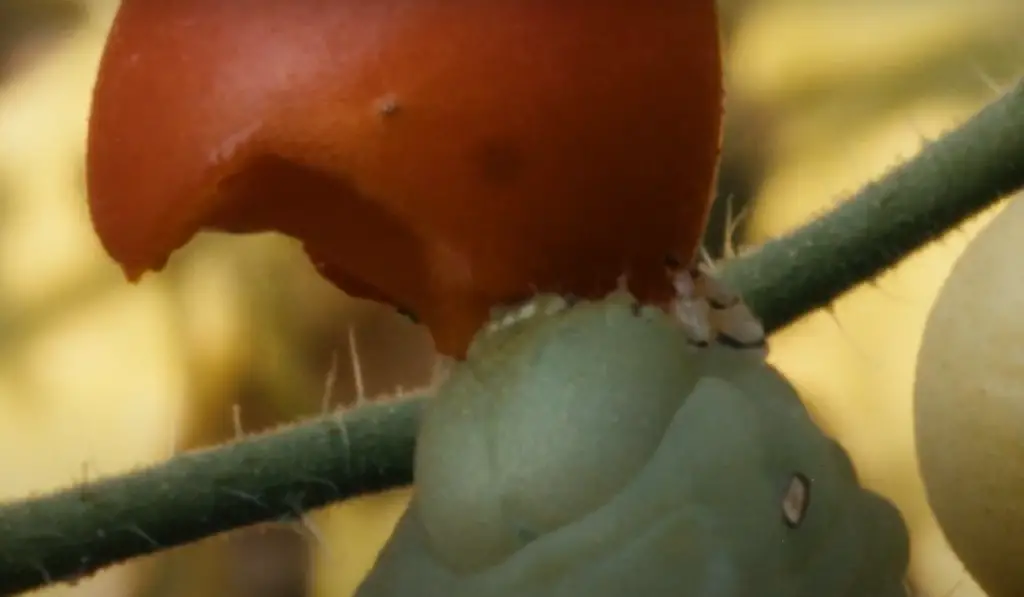
For gardeners, raised beds make it easier to plant, weed, and harvest. They also improve drainage and keep roots warmer in cold weather. Plants also benefit from raised beds because they have better drainage and aeration, and they warm up faster in the springtime.
Raised beds can also help to deter animals from getting to your plants. Raccoons, for example, are less likely to rummage through a raised bed in search of food. By raising the bed off of the ground, you make it more difficult for animals to access the roots and stems of your plants.
Install bright lights around your garden
Another way to deter animals from getting into your garden is to install bright lights around the perimeter. This will make it more difficult for animals to approach your garden without being seen. Motion-activated lights are a good option, as they will only come on when an animal is close to the garden.
These lights will also make it easier for you to see any animals that are trying to get into your garden. You can then take steps to scare them off or remove them from the area. [1],[3]
Comparison of Animals That Eat Tomatoes in Gardens
Tomatoes are a favorite vegetable among gardeners, but unfortunately, they are also a popular target for animals. In this table, we compare various indicators of the animals that eat tomatoes in gardens.
| Animal | Indicators | Frequency of Tomato Consumption |
|---|---|---|
| Raccoons | Nocturnal, omnivorous | High |
| Squirrels | Diurnal, herbivorous | Medium |
| Rabbits | Diurnal, herbivorous | Medium |
| Deer | Diurnal, herbivorous | Low to medium |
| Groundhogs | Diurnal, herbivorous | Low |
The table compares several indicators of animals that are known to eat tomatoes in gardens. These indicators include the animals’ activity times (diurnal or nocturnal), their diets (omnivorous or herbivorous), and the frequency of their tomato consumption (low, medium, or high). Raccoons, for example, are nocturnal and omnivorous, and are known to consume tomatoes at a high frequency. Squirrels, rabbits, and deer are all diurnal and herbivorous, with squirrels and rabbits consuming tomatoes at a medium frequency and deer at a low to medium frequency. Groundhogs, also diurnal and herbivorous, consume tomatoes at a low frequency. This table can be useful for gardeners who want to protect their tomato plants from animal damage and devise effective animal control strategies.
FAQ
What animal loves eating tomatoes?
There are actually quite a few animals that enjoy eating tomatoes! Some of the most common include: deer, rabbits, squirrels, groundhogs, and rats. But even some less common animals like raccoons, opossums, and chipmunks will go for them too. Birds can also be culprits, especially when tomatoes are ripe and soft.
What is eating my tomatoes at night?
There are several nocturnal animals that could be eating your tomatoes at night. The most common culprits are raccoons, opossums, skunks, and groundhogs.
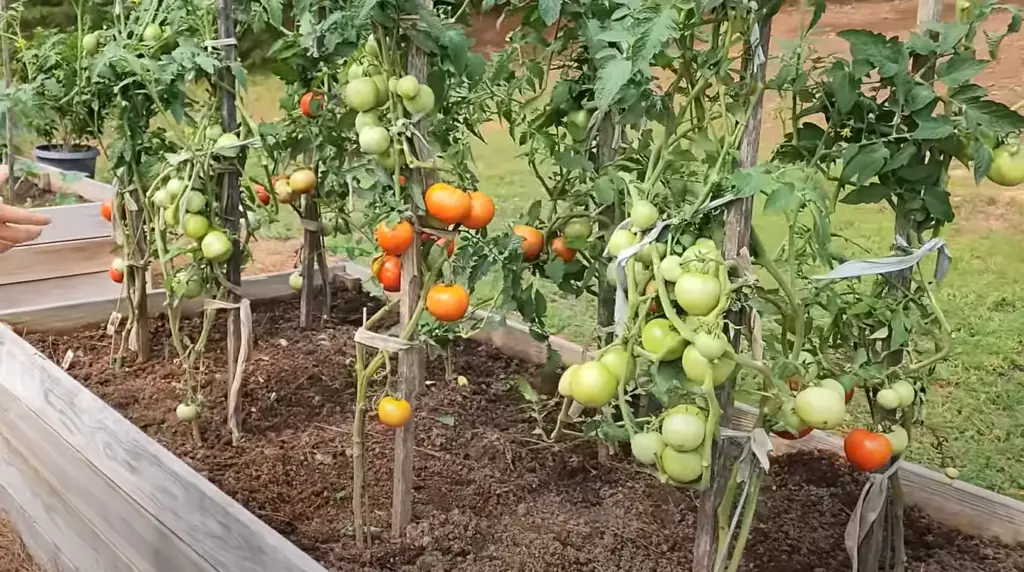
All of these animals are attracted to the sweet smell of ripe tomatoes and will gladly make a meal out of your hard work.
How do I keep animals from eating my tomatoes?
The best way to keep animals from eating your tomatoes is to build a fence around your garden. Another option is to spray your plants with a natural repellent, such as hot pepper sauce or vinegar. You can also try placing plastic owls or snakes near your tomato plants. Finally, make sure to keep your garden clean and free of debris, as this will attract animals looking for a place to hide.
Do squirrels eat tomatoes out of the garden?
Yes, squirrels will eat tomatoes out of the garden if they can reach them. Squirrels are attracted to the sweetness of the tomato and will also eat other fruit such as strawberries. To keep squirrels away from your tomatoes, you can try using a squirrel-proof bird feeder or covering your garden with netting.
How to protect tomato plants from being eaten?
One of the best ways to protect tomato plants from being eaten is by enclosing them in a fence or cage. This will keep larger animals such as deer and rabbits from getting close enough to eat your tomatoes. You can also use repellents such as mothballs, cayenne pepper, or commercial products to make the area less attractive for animals. Additionally, you can trim back any branches that may be providing access for animals to reach your tomatoes. Finally, keeping an eye out for any suspicious behavior can help you spot potential pest activity early on and take action before too much damage has been done.
What animal eats ripe tomatoes on the vine?
Raccoons, skunks, rodents and birds are the primary culprits in a home garden. Raccoons are the most common animal to feast on tomatoes, especially when they are ripe and juicy. Skunks will also eat tomatoes but prefer them unripe. Rodents such as mice and rats may nibble away at the tomato’s skin but usually do not consume it. Birds can sometimes be seen pecking away at the fruit or pulling up a whole plant for its sweet taste.
In order to protect your tomatoes from these critters, consider investing in a fence that is approximately three feet high or taller and bury it six inches into the ground for added protection. Alternatively, you could try spraying the plants with an animal repellent made of garlic or hot pepper. Always remember to remove any fallen tomatoes from the ground as soon as possible so that animals do not have easy access to them.
Do wild rabbits eat tomatoes in the garden?
Yes, wild rabbits will eat tomatoes in the garden. They particularly favor ripened tomatoes that have fallen off the vine. Furthermore, rabbits are not picky and will just as happily munch on green unripe tomatoes as they would a ripe one.
Other animals that may snack on your tomato crop include squirrels, deer, mice, and birds such as turkeys and crows. While these animals don’t typically enjoy eating an entire tomato, they can still do significant damage to your plants if given access to them. It is important to protect your crops from hungry critters by building fences around your garden or using netting or other deterrents like motion-activated sprinklers.
Do birds eat tomatoes in the garden?
The answer is both yes and no. Depending on the type of bird, some may eat tomatoes while others won’t. Some birds that are known to enjoy tomatoes include blackbirds, cardinals, cedar waxwings, mockingbirds, orioles, robins, and woodpeckers.
Bunnies can also be a problem in gardens because they love to snack on young tomato plants. Raccoons are another possible culprit as they have been known to raid backyard gardens for their favorite fruits and vegetables including tomatoes. If you suspect either of these animals is eating your tomatoes, consider building a fence or installing motion-activated lights in your garden to deter them from coming around.
What animals eat cherry tomatoes in the garden?
The most likely culprits are birds, squirrels, and other small rodents. Deer and rabbits may also be attracted to the sweet of cherry tomatoes and can come into the garden to sample them.
In order to protect your tomato plants from animals, you will need to set up physical barriers such as netting or fencing around the area. You should also make sure that any fruits that drop off are removed from the ground quickly so they won’t attract more animals. If necessary, you can also consider using repellents or sprays to discourage animal visitors. Although these methods don’t always guarantee success, they may help reduce the number of visits by unwanted wildlife in your garden.
Do bats eat tomatoes in the garden?
While it may seem odd, bats are known to consume tomatoes in the garden. Bats will feed on ripe or overripe tomatoes as they have a sweet taste. This is especially true in areas where other sources of food are not readily available.
Birds like cardinals, starlings, and blue jays also enjoy eating tomatoes from the garden. They will typically go for the ripest ones first, so be sure to harvest your crop before the birds decide to help themselves!
Deer and rabbits may also munch on tomatoes if they wander close enough to gardens that contain them. So if you’re looking to keep these animals away from your crop, it’s important to make sure there is no easy access by fencing in your garden or using repellents.
Squirrels are known to be quite fond of tomatoes, and they can often be seen darting around gardens in search of the juicy fruit. They particularly like cherry tomatoes and have been known to eat them right off the vine!
What animals eat tomato leaves in the garden?
While there are many different types of animals that may eat tomatoes, the most common culprits are rabbits, deer, and squirrels.
Rabbits will often hop in and help themselves to the juicy red fruits of your tomato plants. They can also damage other nearby plants as they forage for food. To deter them from eating your tomatoes, consider erecting a sturdy fence around the garden or using repellents like cayenne pepper spray or predator urine.
Deer love to munch on young tomato plants – especially if there is nothing else edible around. If you live in an area with deer populations it’s wise to use high fencing (at least 8 feet) around your garden or invest in some netting or bird netting to keep them out.
Squirrels can also be a menace in the garden, eating tomatoes and other fruit directly off the vine. To discourage these critters, try hanging strips of aluminum foil or reflective materials around the perimeter of your garden. You can also fill mesh bags with mothballs, which will deter squirrels from getting close to your plants.
Useful Video: Which Animals Will Eat Tomato Plants?
Conclusion
Tomatoes are a delicious and nutritious fruit that can be enjoyed by humans and animals alike. So no wonder why it also attracts pests. If you live in an area with a lot of wildlife, you may need to take additional steps to protect your tomatoes. You can purchase netting or cages to keep animals from getting to your plants. Or, you can also try spraying your plants with a repellent made with water and cayenne pepper. Be sure to check the netting regularly, as some animals (like squirrels) are clever enough to find their way into the garden even with these measures in place. With a little effort, you can enjoy fresh tomatoes all summer long – even if there are animals in your area! By following these tips, you can keep your tomatoes safe from animals and pests
References:
- https://www.gardeningknowhow.com/edible/vegetables/tomato/protecting-tomatoes-from-animals.htm
- https://wildlifeinformer.com/animals-that-eat-tomato-plants/
- https://farmingmethod.com/what-animals-eat-tomatoes/
- https://learnbirdwatching.com/do-birds-eat-tomatoes/
- https://homeguides.sfgate.com/tomato-plant-attract-58025.html





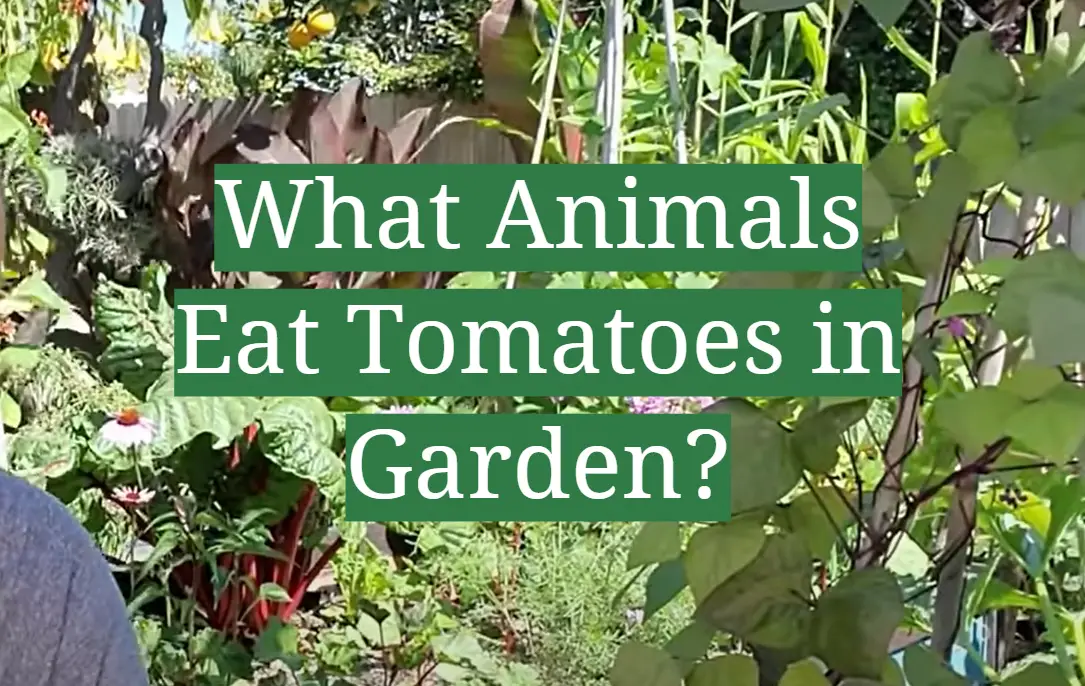

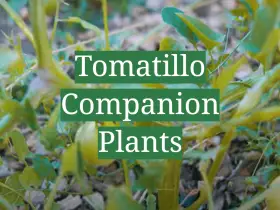

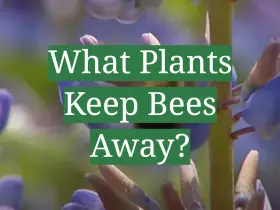
I was so excited to finally see my tomatoes ripening in the garden. I had been watching them grow for weeks and couldn’t wait to get my hands on them. I was even more excited when I saw the first animal, a little bird, eating one of my tomatoes. I was so happy that the bird was getting some nutrition from my garden. I continued to watch as more and more animals came to enjoy my tomatoes. There were little birds, squirrels, raccoons, and even a deer. It was so amazing to see all of these different animals enjoying my tomatoes. I felt like I had created a little community in my garden and was so proud of it.
It’s the height of summer and my garden is producing more tomatoes than I know what to do with. I’ve been giving them away to family and friends, but there are still so many tomatoes ripening on the vine. I’m hesitant to put a fence around my garden, because I don’t want to restrict the deer from grazing on the other plants. But then I remember that deer don’t like tomatoes. They’ll eat them if they’re hungry enough, but they definitely won’t go out of their way for them. So I decided to just let the deer be and enjoy my delicious homegrown tomatoes!
I remember the summer I was six years old, my parents had a vegetable garden in our backyard. One day, while exploring the garden, I came across a small black and white striped animal with a long tail. I didn’t know what it was, but I knew it was cute. I ran into the house to ask my parents what it was. They told me it was a skunk and that they ate tomatoes. At that moment, I knew I wanted to see a skunk eat a tomato.
A few days later, while playing in the garden, I saw a skunk eating a tomato. It was so cute! The skunk would take a bite of the tomato and then chew it for a while before swallowing. It was definitely an interesting sight to see.
As a child, I loved going to my grandparents’ house and picking tomatoes from their garden. My grandmother always had a huge garden with all sorts of fruits and vegetables, but the tomatoes were my favorite. I would always help her pick them, and we would eat them right there in the garden. I never knew that animals would eat tomatoes too until one day I saw a squirrel eating one of the ripe tomatoes. It was so funny to see him climb up the tree and snatch one of the tomatoes right off the vine. I guess I never really thought about it before, but it makes sense that animals would eat tomatoes since they are a fruit. I’m glad my grandmother always planted plenty of tomatoes in her garden, because now I have something to share with the animals when I visit!
One summer, when I was younger, my family had a garden in our backyard. We grew all sorts of vegetables, including tomatoes. Every day, I would go outside to check on the garden and see how the tomatoes were doing.
One day, I noticed that a squirrel was eating the tomatoes. At first, I was surprised. I had never seen a squirrel eat tomatoes before. But then I realized that it made perfect sense. The squirrel was probably looking for a tasty snack.
I watched as the squirrel ate all of the tomatoes in the garden. It was so funny to see. I had never seen a squirrel eat anything like that before. Overall, it was a fun experience to watch the squirrel enjoy our tomatoes.
I was so excited when I planted my tomatoes in the garden this year. I couldn’t wait to bite into a fresh, homegrown tomato. Unfortunately, I soon found out that groundhogs love tomatoes too. Every morning, there would be a few more eaten than the day before. I tried spraying them with water, putting up a fence, and even using a scarecrow, but nothing worked. In the end, I had to give up and get rid of my tomatoes.
I was sitting in my garden, enjoying the sun and tomatoes I had just picked, when I saw a raccoon out of the corner of my eye. I watched as it slowly stalked towards me, its eyes gleaming with hunger. I knew it was only a matter of time before it snatched a tomato from my vine.
Luckily, I had a scarecrow to protect my tomatoes. The raccoon eyed the scarecrow warily before turning and walking away. I breathed a sigh of relief and went back to enjoying my garden.
I was raised on a farm, so I know all about the different animals that like to eat tomato plants. Cows, pigs, and horses are the biggest culprits; they’ll eat everything in sight, including the leaves, stems, and fruit of the tomato plant. I’ve even seen them eat the soil around the plants! Rabbits and deer also enjoy eating tomatoes, but they’re not as voracious as the larger animals. In my garden, I use chicken wire to keep the cows and pigs from getting to my tomatoes, but rabbits and deer can easily get through it. I’ve had to resort to using fences and other deterrents to keep them out.
I’ll never forget the night I saw a raccoon eating tomatoes in my garden. I was so surprised! I had no idea that raccoons ate tomatoes. I guess it makes sense, though, since they’re both fruits. I was happy to see that the raccoon was enjoying my tomatoes and wasn’t causing any damage to my plants. I just hope he or she comes back again soon!
I have always grown tomatoes in my garden, and this year is no exception. I have a few plants in my garden, and I am really looking forward to eating some fresh tomatoes this summer. However, I have been having a problem with animals eating my tomatoes. I think it may be because the tomatoes are growing close to the ground. I have seen several animals, including deer and rabbits, eating my tomatoes.
I have tried to deter the animals by using fencing and by spraying deterrents on the plants, but neither of these methods has been successful. I am not sure what else to do to keep the animals from eating my tomatoes. Has anyone else had this problem, and if so, how did you solve it?
I was sitting in my garden, enjoying the sun and a nice cold glass of iced tea, when I saw a squirrel run up to one of my tomato plants. It seemed like the squirrel was trying to get a bite of the tomato, but it couldn’t quite reach. I got up to go over and see if I could help the squirrel, but as soon as I got close, the squirrel ran away.
I wondered if the squirrel was going to come back, so I stayed in the garden and watched. A few minutes later, the squirrel came back and tried to get a bite of the tomato again. This time, it was successful! The squirrel ate the whole thing, including the stem.
It was really cute to see the squirrel enjoying my tomatoes. I’m glad that they’re getting some nutrition from my garden even though they’re not supposed to be there!
I remember the day I found out that birds eat tomatoes. I was in my garden, and I saw a bird perched on top of my tomato plant. It was eating the tomatoes! I was so surprised. I had never seen a bird eat tomatoes before.
Since then, I’ve been keeping a close eye on my tomato plants, and I’ve seen more birds eating tomatoes. It’s really fascinating to watch. The birds seem to like the tomatoes because they’re juicy and sweet.
I’m glad that the birds are eating my tomatoes, because that means there are less tomatoes for me to eat! But I’m also happy that the birds are getting some nutrition from the tomatoes. Tomatoes are a good source of Vitamin C, which is beneficial for birds.
As a gardener, I know that one of the best ways to protect tomatoes from being eaten by birds and squirrels is to use bird netting. I usually put the bird netting over the entire tomato plant, making sure to secure it to the ground so that the animals can’t get underneath. Another way to protect tomatoes is to use a tomato cage. This will also keep the animals from getting to the tomatoes.
I was so excited when I saw that my tomato plant had produced ripe fruit. I eagerly picked one and bit into it, only to be disappointed by the lack of flavor. I looked closer and noticed that there were tiny green frogs living in the tomato! I couldn’t believe it.
I was curious what the frogs were doing there, so I did some research. It turns out that frogs eat small insects, and they like to eat ripe tomatoes because the skin is thin and the fruit is juicy. They also like to eat other fruits and vegetables, such as strawberries, lettuce, and celery.
I was a little grossed out at first, but now I’m used to it. I even enjoy watching the frogs hop around on my tomato plant. It’s pretty fun to see them eating the fruit right off the vine.
I was sitting in my garden, enjoying the sun and a nice cold glass of iced tea, when I noticed something odd. There was a pigeon sitting on my tomato plant, eating one of my tomatoes! I couldn’t believe it. I had never seen a pigeon eat a tomato before. I was so curious to see what would happen if I offered the pigeon a tomato.
I went into the house and got a few tomatoes and brought them outside. I put them down on the ground next to the pigeon and watched as he ate them up. He seemed to love them! I was surprised that pigeons liked tomatoes, but I was happy to have some new visitors in my garden.
Chipmunks love tomatoes! Every summer, I plant a few tomatoes in my garden just for the chipmunks. They always seem to know when the tomatoes are ripe, and they come running for their share. I usually find them sitting on top of the tomato plants, eating the fruit right off the vine. They’re so cute that I can’t help but laugh.
Chipmunks are pesky little creatures that love to eat tomatoes in the garden. They can easily damage the plants and steal the fruit. Here are a few tips on how to keep them away:
1. Install a wire fence around the tomato plants. The fence should be at least 12 inches high and have small openings so the chipmunks can’t fit through.
2. Place a wire mesh cage over the plants. The cage should be large enough to cover the entire plant, with wire mesh small enough so the chipmunks can’t get through.
3. Sprinkle cayenne pepper or chili pepper around the plants. The peppers will deter the chipmunks from coming near.
4. Try using a commercial repellent. There are several repellents on the market that are made specifically for chipmunks.
5. Finally, if all else fails, you can trap the chipmunks and relocate them to another area away from your garden.
I was so excited when I planted my tomato plants in the garden. I couldn’t wait to get some fresh tomatoes for summer salads. I was a little worried that deer might eat them, but I thought they would be too busy eating the plants in the forest next to our house.
But last week, I came outside and saw that one of my tomato plants was completely eaten! I couldn’t believe it. Deer must have come into our yard in the middle of the night and eaten all of my tomatoes.
I was really disappointed because now I won’t be able to have any fresh tomatoes this summer. But at least I know that deer will eat them, so I’ll need to be more careful when choosing where I plant them in the future.
I have a garden in my backyard and I grow tomatoes in it. I have never seen a mouse eat a tomato, but I suppose it’s possible. I would imagine that a mouse would not be very interested in a tomato, since they are not a typical food for them. However, if there was a tomato that was ripe and easy to access, I’m sure a mouse would nibble on it.